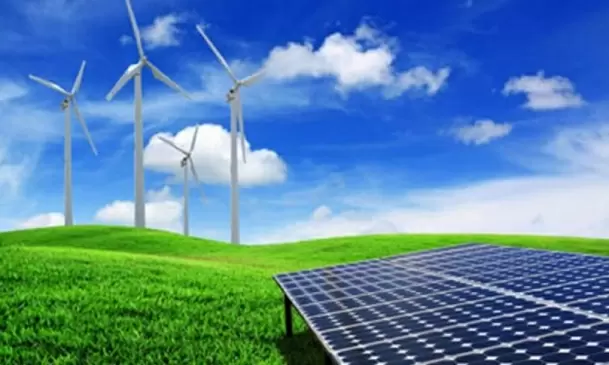India could have averted power crisis with renewable goal on track: Report
New Delhi
20-May-2022

Photo: IANS
India could have averted the power crisis in April if progress towards the 175 GW renewable energy goal had been on track, a new analysis by think tank Climate Risk Horizons said on Friday.
This forced discoms in several states to enforce load-shedding or rolling blackouts to ration power. The power shortage was due to problems with the evacuation and stockpiling of coal at thermal power plants, combined with a spike in the price of imported coal for coastal plants and high prices on the power exchange.
This March was also the hottest in 122 years, causing increased power demand for cooling, with impacts on coal stocks at power plants. There was little relief from high temperatures in April.
In 2016, India set an ambitious goal of reaching 175 GW of renewable energy by 2022, and as of April 2022, it had 95 GW of operating solar and wind power. This implies a target slippage of about 51 GW.
"Our analysis shows that if we had been on track to achieve our renewable target, there would have been no power crisis. The additional generation from solar and wind would have erased the energy shortage and would have allowed power plants to conserve their dwindling coal stocks for evening peak periods when solar generation dips. The additional renewable generation would have translated into a saving of at least 4.4 million tonnes of coal," said Abhishek Raj, analyst with Climate Risk Horizons.
The power shortage has led to some calls to further augment India's coal power and mining capacity, despite the fact that there was no shortage of coal stocks at mines, nor was there a shortage of installed coal power generation capacity.
Watch This TWL Video
Rather, the crisis was a result of lack of coal supply, due to logistical and cash flow reasons.
"Two things are true: without the massive renewable growth since 2016, the power crisis in April would have been much, much worse. At the same time, if we had been on track for 175 GW by the end of the year, there would have been no power crisis at all.
"Logistical constraints in the coal supply chain are a permanent feature and will certainly recur, as will heat waves; the best safeguard is to diversify our electricity mix. This reinforces the need for the Centre and state governments to rapidly scale up their renewable deployment and reduce dependence on coal," said Ashish Fernandes, CEO of Climate Risk Horizons. - IANS
More Headlines
Indian Startup Founder Salaries Drop 25% Amid Funding Winter
DMK to Launch Statewide Protests Against NEP’s Three-Language Formula
Air India Faces Backlash as Elderly Passenger Denied Wheelchair Falls, Lands in ICU
Shiv Nadar Transfers 47% Stake in HCL Promoter Firms to Daughter Roshni
Telangana Cabinet decides to develop Future City on 30,000 acre
Indian Startup Founder Salaries Drop 25% Amid Funding Winter
DMK to Launch Statewide Protests Against NEP’s Three-Language Formula
Air India Faces Backlash as Elderly Passenger Denied Wheelchair Falls, Lands in ICU
Shiv Nadar Transfers 47% Stake in HCL Promoter Firms to Daughter Roshni
Telangana Cabinet decides to develop Future City on 30,000 acre










